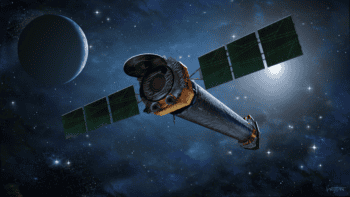
Nicole Bell is a professor of theoretical physics at the University of Melbourne and the newly appointed president of the Australian Institute of Physics (AIP). Her research aims to uncover the identity of the cosmological dark matter and to better understand neutrinos. She leads the theory programme of the Australian Research Council’s Centre of Excellence of Dark Matter Particle Physics
What skills do you use every day in your job?
Multitasking! Between research, teaching and my role as president of the Australian Institute of Physics (AIP), there is always a lot going on. Communication skills would also be up there near the top of the list. My AIP role involves interacting with physicists in academia, education and industry, and promoting the role of physics to government, policy makers and, importantly, the general public. High-level written and verbal communication skills are a must.

NASA puts UK physicist Nicola Fox in charge of $7.8bn science programme
In terms of research, I spend most of my time trying to understand dark matter. Here, the ultimate aim is to uncover the identity and properties of the elusive substance that contributes most of the matter in the universe. We try to do this by understanding how dark-matter particles might interact with ordinary matter and how our ideas can be tested in experiments. Like many areas of physics, my research requires analytical skills, ideas and imagination. It needs logical thinking, an ability to break big problems into bite-sized chunks, and an ability to ask “why?”.
Science is a team sport [where] we can turn good ideas into better ones
What do you like best and least about your job?
One of the best features of my job is that it is never boring. I am always learning new things and have multiple activities on the go at any one time. I also like the fact that there is an opportunity to interact with an ever-expanding network of colleagues from within Australia and around the world.
One of the things that I like least is that working with international colleagues, in different time zones, often requires meetings at crazy hours of the day or night, which can at times make for rather long days. But the benefits of international collaboration outweigh this necessary evil.
What do you know today, that you wish you knew when you were starting out in your career?
The importance of developing networks: collaborators, colleagues, students, mentors. Science is a team sport. Collaboration is the norm, and we achieve more when we work together. By having conversations and connections with lots of different people, we can turn good ideas into better ones. In Australia, where the physics community is relatively small, we interact with researchers from a more diverse range of areas than might be the case elsewhere in world where the community in each subdiscipline is much larger. Rather than being a limitation, I suspect that this cross-fertilization of ideas is a real strength of Australian science.



